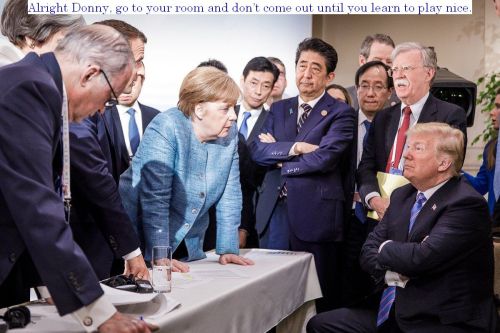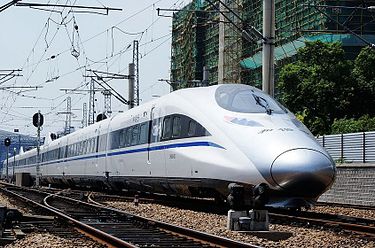My latest article
What we can and cannot afford
New Warrior Training Adventure and the Mankind Project (MKP)
The developing business of commercial trade exchanges
Other Items of interest

My latest article
How has extreme centralization of power and concentration of wealth come about? What are the pillars upon which the global power structure rests? How can power be decentralized and dispersed more broadly to enable people to live in peace and freedom?
These are questions I addresses in my latest article, Confronting the power elite, An abridged version was published a few days ago by Open Democracy in their online journal Transformation. It was then picked up by the Post Carbon Institute and republished in their journal Resilience. Here is an excerpt from the original:
The world today is controlled by a small elite group that has been increasingly concentrating power and wealth in their own hands. There are many observable facets to this power structure, including the military security complex that president Eisenhower warned against, the fossil fuel interests, and the neocons that are promoting U.S. hegemony around the world, but the most powerful and overarching force is “the money power” that controls money, banking, and finance worldwide. It is clear that those who control the creation and allocation of money through the banking system are able to control virtually every other aspect of global society.
Having taken control of the political leadership in North America and western Europe, they are determined to use military force, if necessary, to create a unipolar world order in which the power elite enjoy “full spectrum dominance.” Based on a long established pattern of covert and overt interventions, it is evident that they are willing to employ, either directly or through proxies, a wide range of tactics, including propaganda, bribery, cooptation, deception, assassinations, false-flag attacks and war. Large segments of the media and entertainment industries, education, and the military power have been captured to help manufacture public consent.
Be that as it may, I believe that the natural course of human evolution tends toward a multi-polar world order based on honesty, openness, compassion, cooperation, and fairness, but that requires a well-educated and informed populace and “broad spectrum” participation in the political process. Fortunately, the internet and world wide web have enabled people to be better informed than ever before and to engage with one another directly, bypassing intermediaries that control and limit what people can share. On the other hand, the political machinery has been so thoroughly taken over by the power elite that the will of the people has thus far been of little consequence in deciding the course of world affairs.
So what can be done to turn the tide? How can we the people empower ourselves to effectively assert our desires for a more fair, humane and peaceful world order? Is it possible to influence the behavior of those in power? Or is it possible to install new leaders who will act more responsibly and in accordance with the popular will? Or is it necessary, or even possible, to reinvent and deploy political and economic structures by which people can more directly assert themselves? …
Read the entire article here.
___________________________________
What we can and cannot afford is another article that I published on my website about the same time. This is a subject that gets far too little attention in the political debate and thus we remain burdened with “sacred cows” that are driving us to destruction.
- We cannot afford continuation of the Empire with its deployment of military forces around the world and endless overt and covert warfare.
- We cannot afford continuation of the interest-based, debt-money regime that forces unnecessary expansion of economic activity and centralizes power and concentrates wealth in the hands of a super elite.
- We cannot afford continuation of the environmental destruction and climate change that is caused by the fossil fuel based economy.
Read the full article here.
___________________________________
New Warrior Training Adventure and the Mankind Project (MKP)
For almost a year now I’ve been participating in a biweekly men’s circle associated with the Mankind Project, a community in which men support one another in achieving self-awareness, finding purpose, taking responsibility, and becoming compassionate servants to their communities and the planet. The first weekend in May I participated in the New Warrior Training Adventure at a ranch in central Arizona. It was a significant experience that helped to boost my confidence, self-esteem, and emotional maturity—just what I needed at a time when I was feeling a bit lost and dissatisfied with the results of my work. The training helped me to identify imbalances in my life, accept reality, and clarify my purpose going forward. I now feel more grounded and motivated, and connected and supported by a growing brotherhood of “new warriors.” I highly recommend the NWTA to any man who seeks to improve himself and his relationships. It was no surprise that I was the oldest man there, but I can testify that self-inquiry and stretching ones’ limits are appropriate endeavors at any stage in life.
___________________________________
The developing business of commercial trade exchanges
Recently, I came across an article about what seems to be a significant development in the commercial trade exchange industry: Trade Authority rebrands as Moxey with new digital currency, national expansion plans. I’ve been aware of the Trade Authority exchange for several years but had not taken a close look at it. I’ve lately been dialoging with Chip Davis, founder of Trade Authority and currently Executive Vice President of Moxey, and with others in the Moxey executive team. Moxey, a network of 14 trade exchanges operating around the Gulf coast, is unique in the industry in that the various exchanges in the network are each member-owned.
Based on the answers to my questions that I have received so far, it appears that Moxey has avoided the common mistakes that have limited the effectiveness of some other trade exchanges and prevented them from realizing their full potential (For more about that see this excerpt from my book, Chapter 15 Limiting Factors in the Operation of Commercial Trade Exchanges). At some point in the near future, I will publish my interview with the Moxey leadership. Watch for it on https://beyondmoney.net/.
___________________________________
Other Items of interest
The Bank Bailout
The Big Bank Bailout appeared in Forbes magazine a couple years ago. As another financial crisis looms on the horizon, it is still relevant, describing in detail the forms and extent of the bank bailout that began in 2008 and continues to this day.
Malaysia
Over the past 11 years, I’ve spent a lot of time in Malaysia. Upon my first visit I discovered that Malaysia is not some poor, insignificant Asian backwater but a country with a well-developed infrastructure and geo-political importance—a country worth getting to know. The recent election unseated the party that has governed Malaysia since its founding in 1957 and saw the surprising return to power, at age 92, of Mahathir Mohamad, the man responsible for Malaysia’s modernization.
This New York Times article tells the story, A Stunning, Sudden Fall for Najib Razak, Malaysia’s ‘Man of Steal’. And this comment, Endearing courage of Malaysians rescued country from the brink…, provides additional background and insight into the significance of the election outcome.
Russia and Syria
Anyone who wishes to understand geopolitics needs to have a broad purview and not rely simply upon mainstream media sources which seldom provide more than a one sided and biased perspective. This is especially true of the coverage relating to Russia and Syria.
Despite President Trump’s repeated statements about his desire to normalize relations with Russia, others in his administration and the mainstream media continue their barrage of unsubstantiated allegations against both the Russian and Syrian governments. In his Nation article, Stephen F. Cohen, professor emeritus of Russian studies at NYU and Princeton, provides some counterweight to the anti-Russian hysteria arguing that, “Given a chance, Russia can be a vital peacemaker, and there is ample reason to think that the Kremlin is ready to do so if again met halfway by Washington.” Will Trump’s handlers and the deep state allow that to happen? That seems unlikely but time will tell.
Columbia University Professor Jeffrey Sachs tells the truth about US involvement in the Syria catastrophe on The Jimmy Dore Show, Bombshell: Professor Stuns MSNBC Panel On Syria, and in this excellent interview Between the Lines.
___________________________________
There is much more that I could include in this message but I know you have many other things vying for your attention so I will leave it at that.
Regarding travel, other than my brief visit to family on the east coast in early June, I’ve not been traveling since my journey to Greece a year ago. I’m still hoping to get away for a few weeks this summer but my plans remain open.
Wishing you all a pleasant summer,
Thomas

 to the extensive and efficient rail systems in Germany, Austria, Switzerland and elsewhere. China too has much better trains than the U.S. and has been rapidly expanding its transport infrastructure. According to Wikipedia, China already has “the world’s
to the extensive and efficient rail systems in Germany, Austria, Switzerland and elsewhere. China too has much better trains than the U.S. and has been rapidly expanding its transport infrastructure. According to Wikipedia, China already has “the world’s  put it in perspective, the U.S. spends many times more on military than any other country. According to the
put it in perspective, the U.S. spends many times more on military than any other country. According to the 
